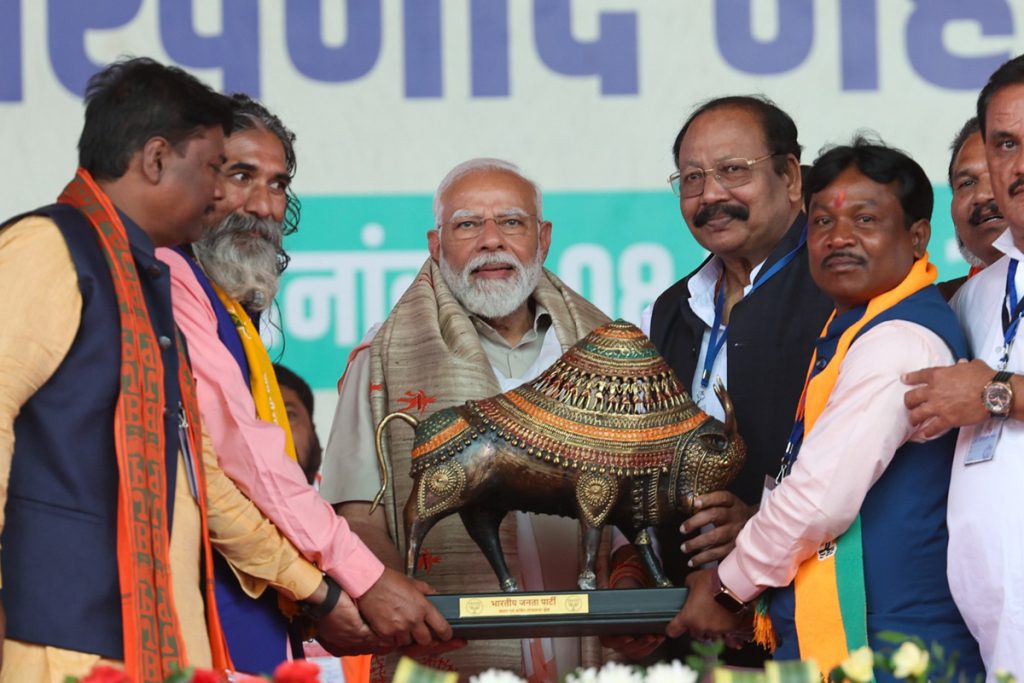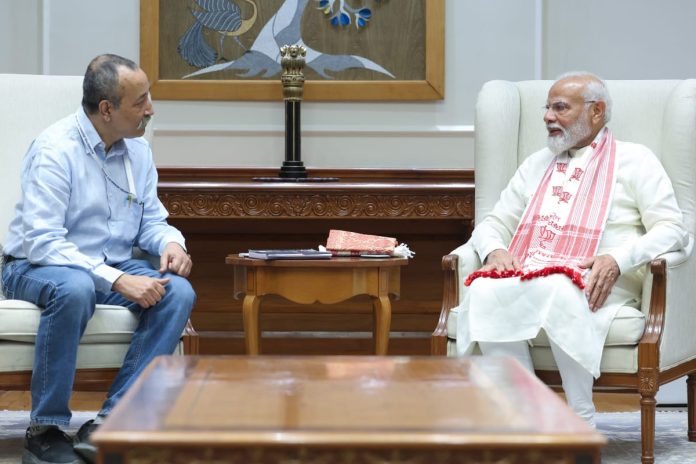New Delhi: Prime Minister Modi has firmly rejected China’s territorial claims concerning Arunachal Pradesh, emphasizing that the state “is an integral part of India and will always remain so.” He also highlighted the significant progress in the situation within the state, attributing it to timely interventions by the Central government and the efforts of the Manipur government.
In an interview with the Assam Tribune, PM Modi reiterated, “Arunachal Pradesh is, was, and shall always be an integral part of Bharat.“
Prime Minister Modi’s remarks come in response to China’s recent provocative actions, including the naming of 30 places in Arunachal Pradesh, aimed at bolstering its baseless claims over the area. While Modi’s stance on the territorial integrity of Arunachal Pradesh was anticipated, he also underscored the strategic importance of the Sela tunnel. This tunnel is poised to revolutionize military logistics by facilitating rapid troop and material movement to Arunachal Pradesh throughout the year, particularly to Tawang.
After years of neglect since the Independence, the Northeast region has now become an abundant region from an abandoned region…."We have changed the perception that the Northeast is far by taking governance at the doorstep of people. Aaj Northeast Na Delhi se Door Hai Aur Na… pic.twitter.com/aSy6x8NRyb
— The Assam Tribune (@assamtribuneoff) April 8, 2024
Highlighting various development projects in Arunachal Pradesh, such as the Donyi Polo airport and schemes for water and housing worth Rs 55,000 crore, PM Modi emphasized his government’s commitment to enhancing prosperity in the state. He also spoke of broader initiatives like Unnati, aimed at fostering development across the entire North-East region.
PM Modi hailed the North-East’s transformation as one of New India’s greatest success stories, contrasting it with the historical neglect by previous administrations. Despite criticism of his government’s handling of ethnic conflicts, particularly in Manipur where over 175 people lost their lives, Modi defended his administration’s efforts. He asserted that significant resources and administrative efforts have been dedicated to resolving these conflicts, resulting in notable improvements in the situation, thanks to the timely intervention of both the central government and the Manipur government.
Prime Minister Modi highlighted Home Minister Amit Shah’s significant presence in Manipur during the peak of the conflict, where he conducted over 15 meetings with various stakeholders to facilitate resolution. Modi stressed the collective responsibility to handle such situations sensitively.
With the BJP winning a majority of seats in the North-East during the last Lok Sabha polls and eyeing dominance in the region, which holds 26 Lok Sabha seats including one from Sikkim, optimism prevails within the party.
Reaffirming India’s commitment to border security amid the influx of migrants from Myanmar into Mizoram, Modi outlined measures such as discontinuing the Free Movement Regime, bolstering border force deployment, and enhancing collaboration with Myanmar authorities. Additionally, the Indian government has encouraged Mizoram to undertake a campaign to capture biometric data of illegal migrants and has initiated the construction of fencing along feasible patches of the Indo-Myanmar border.

However, the Mizoram government has opposed the move to scrap the Free Movement Regime, expressing concerns about the inconvenience it may cause to tribes with cross-border ties.
Regarding security in the region, known for multiple insurgencies, Modi noted substantial progress in curbing insurgency, with 11 peace agreements signed and over 9,500 insurgents surrendering since 2014. He highlighted the signing of a framework agreement with the NSCN-Isak Muivah group of Nagaland on August 3, 2015, aiming for a permanent solution to the long-standing Naga political issues.

